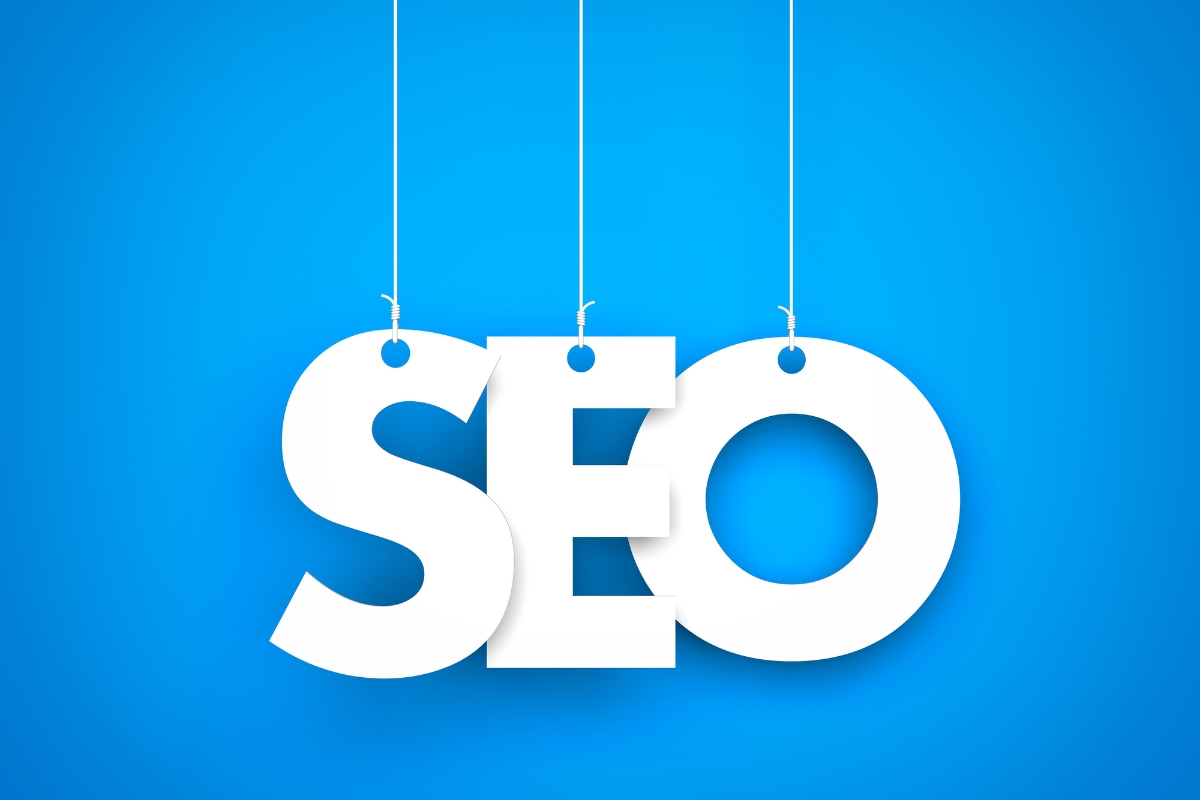In today’s digital landscape, small businesses need to make their mark online to thrive. However, in a crowded space, getting noticed is no easy feat. That’s where Search Engine Optimization (SEO) comes in.
It’s the key ingredient that helps your website shine on search engine results pages, attracting the right audience. In this guide, we’ll explore SEO for small businesses, offering professional insights and actionable tips to elevate your online presence and stay ahead in the competitive online arena.
SEO for Small Businesses: How to Rank High and Beat the Competition
Importance of Local SEO for Small Businesses

Local search engine optimization (SEO) plays a critical role in the success of small businesses in today’s digital landscape. By focusing on optimizing their online presence for local searches, small businesses can effectively target their specific audience, increase visibility in local search results, and drive more foot traffic to their physical locations.
One of the key benefits of local SEO for small businesses is the ability to target potential customers in a specific geographic area. By optimizing their website and online listings for local keywords, small businesses can ensure that their business appears in local search results when potential customers are looking for products or services in their area. This targeted approach helps small businesses reach customers who are more likely to convert, leading to higher sales and revenue.
Moreover, local SEO helps small businesses build credibility and trust within their local community. When a small business appears at the top of local search results, it signals to customers that the business is reputable and trustworthy. This increased visibility can help small businesses attract new customers and retain existing ones, ultimately leading to long-term success.
Another important aspect of local SEO for small businesses is the opportunity to stand out from the competition. By optimizing their online presence for local searches, small businesses can differentiate themselves from larger competitors and establish a strong local presence. This competitive advantage can help small businesses attract more customers and grow their market share in their local area.
In addition, local SEO can drive more foot traffic to small businesses’ physical locations. By optimizing their online listings with accurate business information, such as address, phone number, and business hours, small businesses can make it easier for customers to find and visit their stores. This can lead to an increase in store visits, resulting in higher sales and revenue for small businesses.
Overall, the importance of local SEO for small businesses cannot be overstated. By focusing on optimizing their online presence for local searches, small businesses can target their specific audience, build credibility and trust, stand out from the competition, and drive more foot traffic to their physical locations. Investing in local SEO is essential for small businesses looking to boost their online presence and grow their business in today’s competitive market.
Crafting SEO-Friendly Website Content

Creating high-quality and engaging content is key to successful SEO for small businesses. When crafting website content, it’s important to keep in mind both users and search engines. Your content should be informative, relevant, and easy to read.
To make your content more SEO-friendly, incorporate relevant keywords naturally throughout the text. However, avoid keyword stuffing as it can negatively impact your rankings. Additionally, use headings (H1-H6) to structure your content and make it easier for both users and search engines to navigate.
Leveraging Keywords to Enhance Searchability

When it comes to SEO for small businesses, leveraging keywords is crucial for enhancing searchability. Strategic use of keywords can significantly boost your online presence and help your target audience find you more easily.
One key aspect of optimizing your website for search engines is to conduct thorough keyword research. By identifying relevant keywords related to your business niche, products, or services using seo tools for small businesses, you can tailor your content to match what your potential customers are searching for online.. Incorporating these keywords naturally throughout your website content, meta descriptions, and titles can improve your search engine rankings.
Furthermore, utilizing long-tail keywords specific to your small business can help you target a more niche audience. Long-tail keywords are longer and more specific phrases that visitors are likely to use when they are closer to making a purchase decision. By including these targeted keywords in your content, you can attract higher-quality leads that are more likely to convert.
Optimizing your website for local search is another essential strategy for small businesses. Including location-based keywords in your content can help you appear in local search results when potential customers are looking for products or services in their area. This is particularly beneficial for brick-and-mortar businesses targeting a specific geographic location. For businesses with multiple locations, implementing SEO for multiple locations can help you optimize your website for each location, ensuring that you appear in local search results for each area you serve.
In addition to on-page optimization, off-page SEO techniques such as link building can also improve your searchability. By earning backlinks from reputable websites in your industry, you can signal to search engines that your website is a valuable resource worth ranking higher in search results.
The Significance of Backlinks in SEO Strategies

Backlinks play a crucial role in enhancing the visibility and ranking of a website in search engine results, especially for small businesses aiming to strengthen their online presence through SEO strategies.
These external links from other websites act as a vote of confidence for your site’s credibility and authority in the eyes of search engines. When reputable websites link back to your content, search engines like Google consider your website as a reliable source of information, which can significantly impact your SEO efforts.
In the competitive landscape of SEO for small businesses, acquiring high-quality backlinks is a strategic approach to improve your website’s search engine rankings. By focusing on building a diverse portfolio of backlinks from relevant and authoritative sources, you can signal to search engines that your website is a valuable resource within your industry niche. This not only helps in driving organic traffic to your site but also enhances your brand’s reputation and trustworthiness among your target audience.
Moreover, backlinks serve as pathways for search engine bots to discover and index new content on your website more efficiently.
When reputable websites link to your pages, search engines are more likely to crawl and index your content, which can lead to faster indexing and improved visibility in search results for relevant keywords related to your small business niche. This can ultimately drive more organic traffic to your site and increase the chances of converting visitors into customers.
Incorporating well-rounded backlinks for SEO involves a combination of tactics such as guest blogging for small businesses, outreach to industry influencers, participating in online communities, and leveraging social media platforms to promote your content. By actively seeking opportunities to earn backlinks from authoritative websites and creating valuable content that naturally attracts links, you can strengthen your website’s authority and relevance in your industry niche.
Utilizing Social Media for SEO Boost

When it comes to enhancing SEO for small businesses, one powerful tool that should not be overlooked is utilizing social media platforms. Social media can play a crucial role in boosting your online presence and driving traffic to your website. By strategically incorporating social media into your SEO strategy, you can reach a wider audience, improve brand visibility, and increase website traffic.
Creating a strong social media presence is essential for small businesses looking to improve their online visibility. By sharing valuable content related to your industry and engaging with your audience on platforms such as Facebook, Twitter, Instagram, and LinkedIn, you can establish your brand as an authority in your niche. This not only helps in building credibility but also drives traffic to your website, which is beneficial for SEO.
Moreover, social media signals are becoming increasingly important for search engine rankings. Search engines consider social signals such as likes, shares, and comments as indicators of content quality and relevance. By actively engaging with your audience on social media and encouraging them to interact with your posts, you can improve your chances of ranking higher in search engine results pages (SERPs).
Another way to utilize social media for SEO is by optimizing your social profiles. Make sure that your profiles are complete, with accurate business information and keywords related to your industry. This will not only help users find you easily on social media but also improve your chances of appearing in relevant search results.
Additionally, sharing your website content on social media can drive traffic to your site and improve its authority. When your content is shared and linked to from reputable social media sites, it sends a signal to search engines that your website is trustworthy and relevant. This can result in higher search engine rankings and increased organic traffic.
Mobile Optimization for Small Business Websites

With the increasing use of smartphones and tablets, mobile optimization has become crucial for small business websites. Mobile optimization ensures that your website is responsive and user-friendly on all devices.
Google prioritizes mobile-friendly websites in its search results, so optimizing your site for mobile devices can significantly improve its visibility. Make sure your website loads quickly, has a responsive design, and provides a seamless user experience across all devices.
Measuring SEO Success: Metrics and Tools

Measuring SEO success is crucial for small businesses looking to boost their online presence. By tracking key metrics and utilizing the right tools, businesses can assess the effectiveness of their SEO strategies and make informed decisions to improve their online visibility.
When it comes to SEO for small businesses, focusing on the right metrics is essential. One of the most important metrics to track is organic traffic, which shows how many visitors are coming to your website through search engine results. By monitoring organic traffic regularly, businesses can gauge the impact of their SEO efforts and identify trends over time.
Another vital metric to consider is keyword rankings. By keeping an eye on where your target keywords rank in search engine results pages (SERPs), you can see how well your website is performing for specific search queries. Tracking keyword rankings allows businesses to adjust their SEO strategies and optimize their content for better visibility.
In addition to metrics, using the right tools can streamline the process of measuring SEO success. Tools like Google Analytics provide valuable insights into website traffic, user behavior, and conversion rates. By leveraging these tools, businesses can gain a deeper understanding of their online performance and identify areas for improvement.
Furthermore, tools like SEMrush and Moz can help businesses conduct keyword research, track rankings, and analyze competitors’ strategies. These tools are indispensable for SEO for small businesses as they provide actionable data to guide decision-making and enhance online visibility.
Conclusion: Elevating Your Small Business with Effective SEO Strategies
SEO for small businesses is a powerful tool that can significantly boost your online presence. By understanding the basics of SEO and implementing effective strategies, you can attract more organic traffic, increase brand visibility, and ultimately drive more conversions.
Let Newman Web Solutions guide your small business to success with our proven SEO strategies. Contact us today at (404) 301-9189 or schedule a free marketing strategy session to discuss how our local business marketing agency can help your business thrive in the digital landscape. With our expert SEO solutions and personalized approach, we’ll optimize your website to rank higher in search engine results and drive more traffic to your business. Let’s take your online presence to the next level together!





